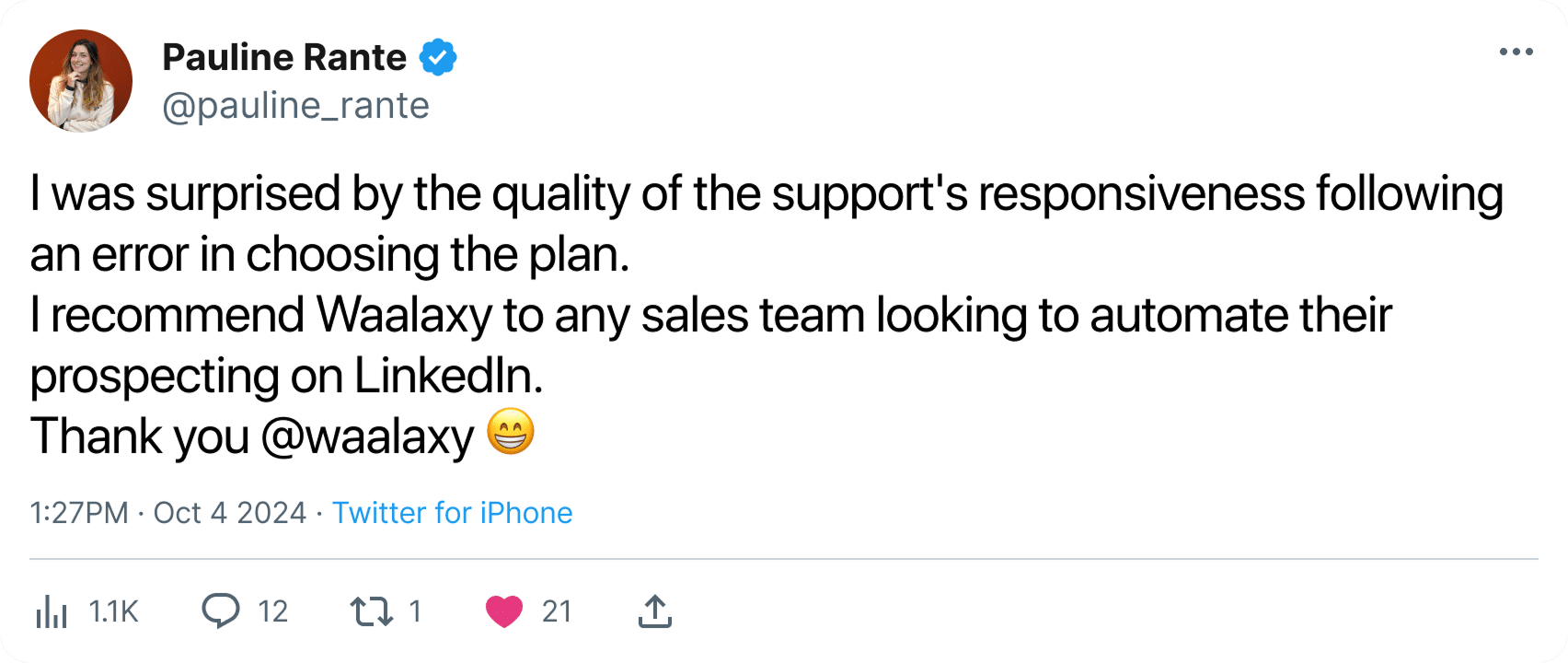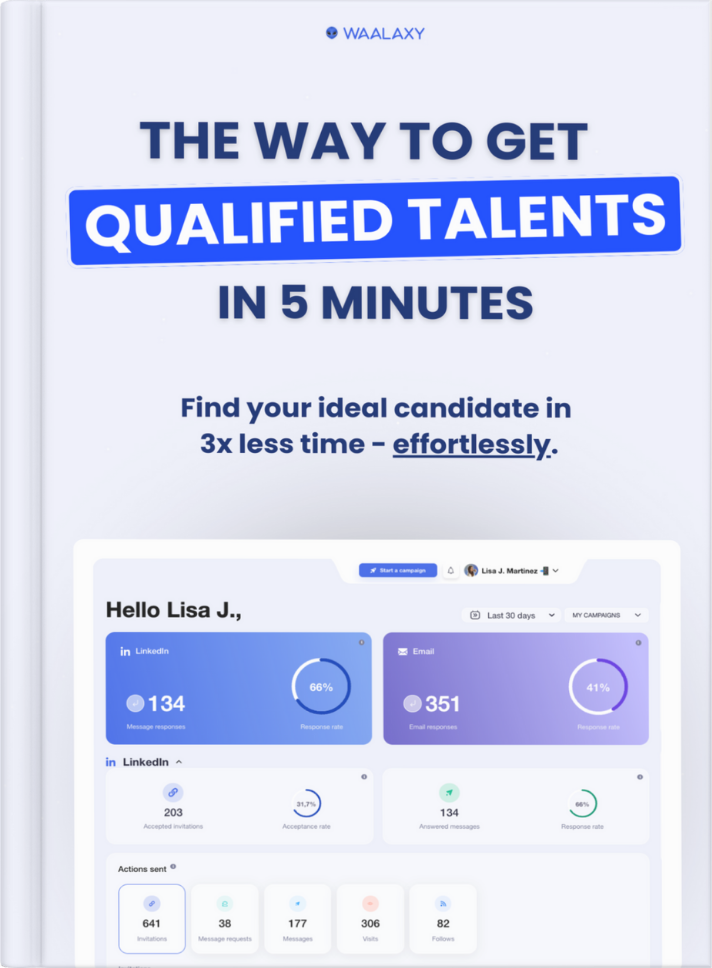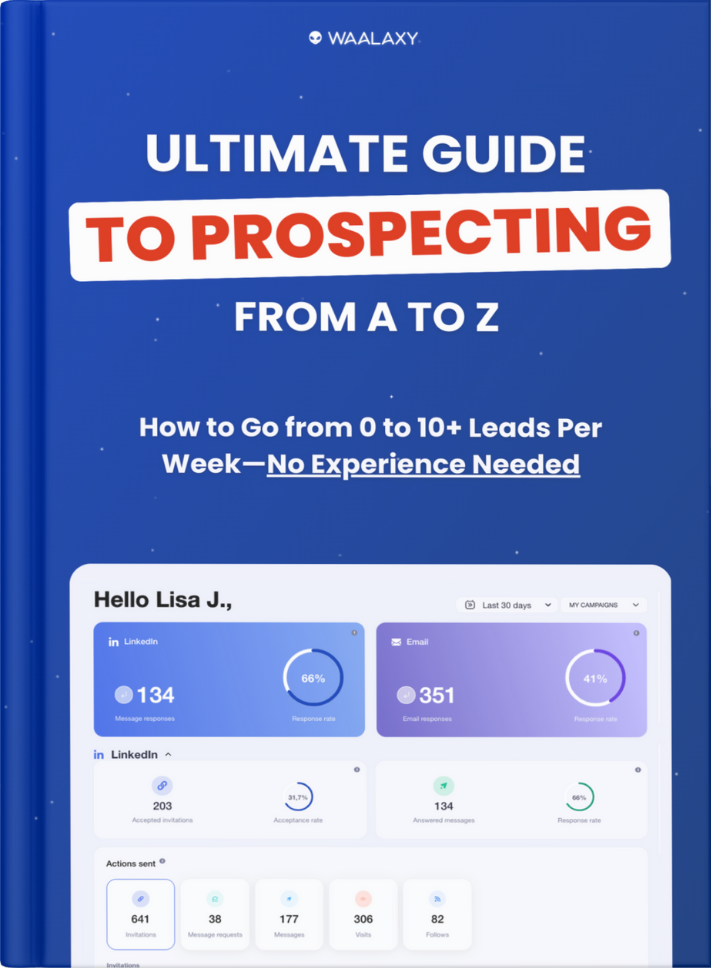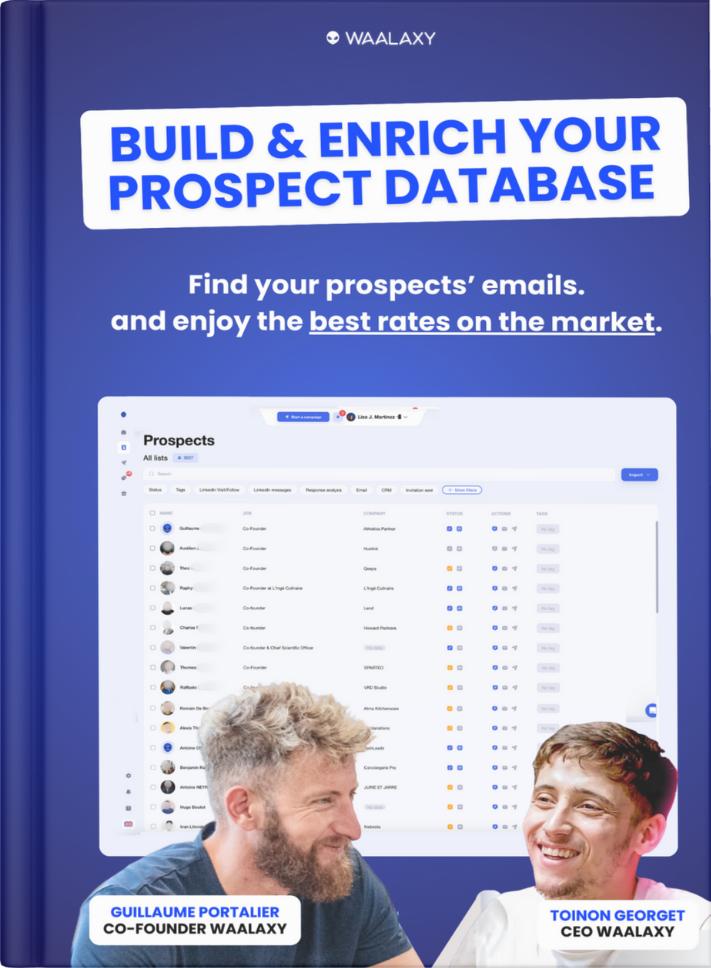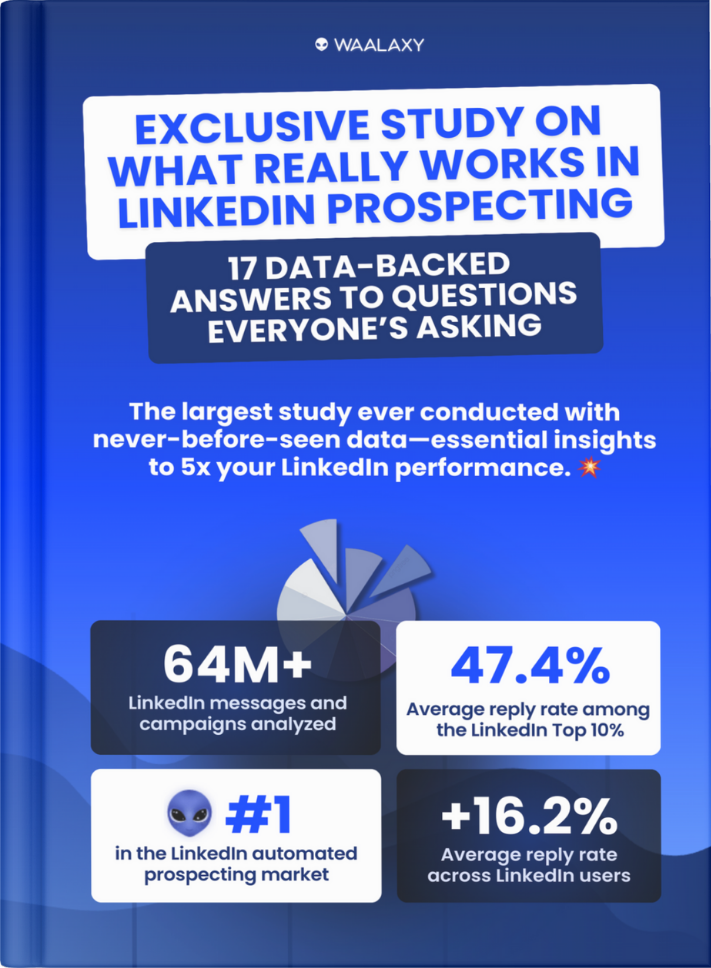If you’re starting your business, you might be wondering which social media platform is better: LinkedIn vs Twitter? 🧐
In this article, you’ll find the main uses for each one and their key differences to help you build a marketing strategy that suits your business. 🧥
Which is better, LinkedIn or Twitter X? 5 Comparisons
Before we get started with the comparison of Twitter vs LinkedIn. You need to ask yourself this important question: Where’s my audience at? 📍
Depending on the answer, you’ll be able to determine which online platform is better to help you advertise your business, find new customers and engage with your audience! 🫶
Let’s go! 🔥
1. Should you use LinkedIn or Twitter for B2b or B2C Business?
For B2B (Business to Business) activities, LinkedIn is often the best choice due to its professionalism and networking features. 🏆 It allows businesses to connect directly with decision makers, share content specific to their industry, and foster professional relationships.
LinkedIn is particularly effective at generating leads, positioning a brand, and establishing thought leadership in the professional community. If you want to boost your lead gen, consider using an automation tool like Waalaxy! 👽
On the other hand, Twitter is more effective for B2C (Business to Consumer) companies. Its broad reach and real-time threads make it ideal for engaging directly with consumers, 🤝 managing customer service, promoting products, and leveraging trending topics to increase your company reputation.
The informal and fast-paced nature of Twitter allows B2C businesses to create dynamic, personalized branding, engage with a wider audience, and drive more effective consumer engagement. ⚡ However, LinkedIn is more specialized and can be automated!
Choosing between LinkedIn and Twitter largely depends on your target audience and business goals. 🧲
2. Should you use X Twitter vs LinkedIn to find Partnerships?
When choosing between X Twitter vs LinkedIn to find partnerships, consider LinkedIn’s specific strengths, which excel in professional networking. 🤲
LinkedIn provides a powerful environment for building professional relationships, targeting specific industries, and connecting with decision makers. 🏹 Its tools, such as InMail and Groups, facilitate targeted networking and are ideal for finding potential partners who may align with your business goals.
However, Twitter can be effective for more informal or creative partnerships, especially in industries like media, entertainment, or technology. 📱 It allows for quick interactions and the ability to engage quickly with brands and influencers. 👉 This can be ideal for initiating partnerships that benefit from on-trend communication.
In general, LinkedIn is recommended for formal, long-term business partnerships, ♾️ while Twitter may be more suited for project-based or promotional collaborations.
3. Should you use LinkedIn or X Twitter to do Advertising?
Choosing between LinkedIn and X (formerly Twitter) for advertising depends on your target audience and advertising goals. 🤑 LinkedIn is ideal for B2B advertising, targeting professionals based on their industry, location, and seniority, making it very effective for niche professional audiences and generating leads in a business setting.
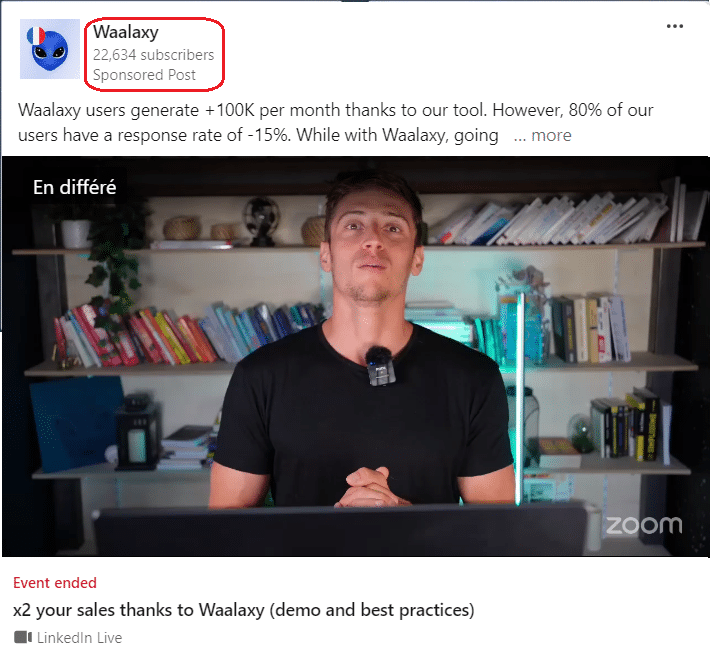
On the other hand, X (formerly Twitter) is better suited for B2C advertising due to its large and diverse user base. 😁 It excels at mass outreach campaigns, brand engagement, and promotional activities.
X’s strengths lie in its ability to deliver messages quickly, capitalize on trends, and engage users with more casual, impactful content.
If your goal is to reach a broad consumer audience with dynamic, trend-driven campaigns, choose X. ✈️ For targeted professional outreach, especially in a B2B context, LinkedIn is more effective. 👍
4. Should you use LinkedIn vs Twitter for Hiring?
When it comes to recruiting, LinkedIn is often a better choice than Twitter. 🥇 LinkedIn is specifically designed for professional and work-related networking activities, making it very effective at reaching qualified candidates.
Its tools and features like LinkedIn Hiring, job postings, talent search functionality, and recruiting services, are designed to help recruiters and hiring managers identify, 🔍 evaluate, and connect with potential new candidates based on their profiles, detailed career experiences, skills, recommendations, and approvals.
Moreover, Twitter can be useful in reaching a wider audience and improving employer branding by highlighting company culture and news. 💫 However, it lacks the structured recruiting features and professional context that LinkedIn offers.
To precisely target and reach a pool of professionals who are actively looking for career opportunities or openings, LinkedIn offers a more targeted and responsive platform. 🎯 So for direct recruiting needs, LinkedIn is the recommended choice over Twitter.
5. Should you use LinkedIn or Twitter for Marketing?
Choosing between LinkedIn or Twitter for marketing depends on your target audience and the type of content you plan to share.
LinkedIn is great for B2B marketing, providing professional, 🔥 targeted content to reach industry-specific audiences and is ideal for establishing thought leadership and networking within professional circles.
Here’s an example of a corporate post that’s aimed to a B2b audience and helps to create interactions between professionals : 👇
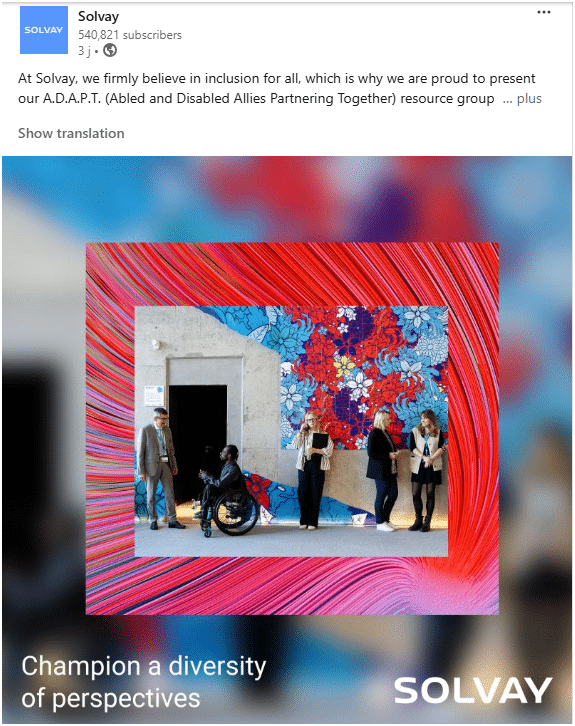
Twitter, on the other hand, excels at B2C marketing due to its broad reach, making it suitable for brand awareness, customer engagement, and viral marketing campaigns. 🦠
Here’s an example of Burger King’s online presence on X. It’s always making a buzz with its witty replies and posts! 👑
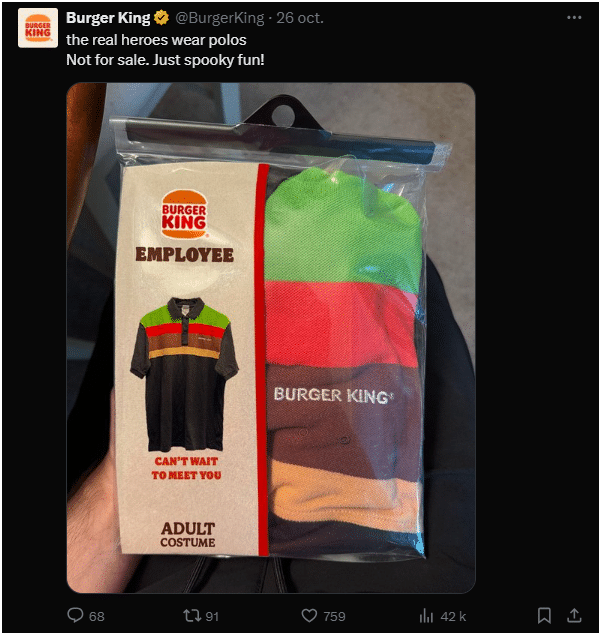
For businesses looking to influence experts and decision makers, LinkedIn is the best choice, 🏅 while Twitter is better for engaging with a broader consumer audience and getting your message out quickly!
LinkedIn VS Twitter (X) : 5 Key Differences
Twitter vs LinkedIn are very different platforms: one is an information source and the other is a professional social network. 💼 They are similar from a business owner’s perspective because they are both useful tools for building a brand.
Here are some of the key differences: 👇
1. LinkedIn vs Twitter Has Better Reach
For a long time, these LinkedIn posts did not have a large reach. 😪 The content was often only seen by first-level connections and rarely went viral.
This changed in 2017, with the introduction of the new LinkedIn News Feed algorithm, which attempted to show readers more interesting and relevant content in their News Feed based on their interests and preferences. 🤩
Early adopters quickly learned how to use the new News Feed algorithm to generate leads on LinkedIn through content marketing. ✍️
Over time, LinkedIn has introduced more and more original content formats. First it was video, then it was documentaries, then it was livestreaming.
Each time, they changed their algorithm to give the new exciting content a huge, unfair advantage in terms of impressions in the News Feed. 👀
With the advent of video posts, text posts were demoted and lost significant impressions. 🎥 If you wanted to succeed, you had to ride the wave and move from text to video.
Here’s an example of a beauty brand using video post to engage with their audience on LinkedIn : 💅
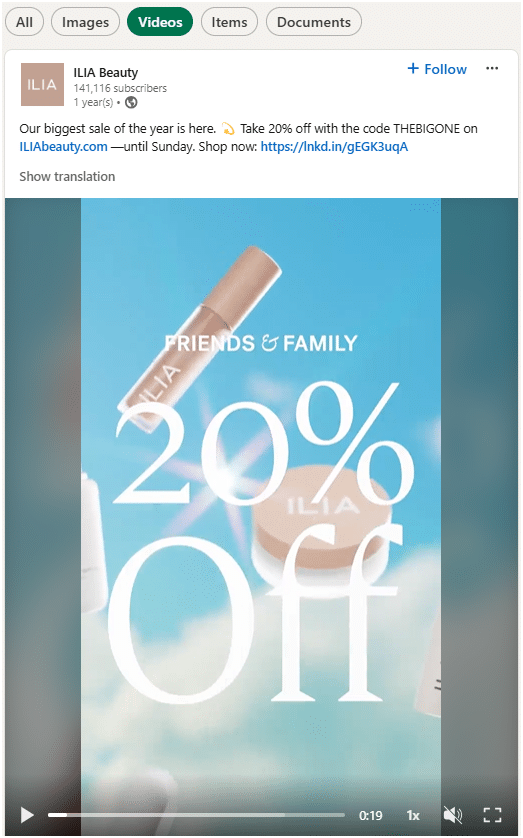
All of this changed in late 2019 or early 2020. Today, organic reach on LinkedIn is much more balanced, and going viral on LinkedIn is also more difficult.
2. LinkedIn vs X Is More Professional Focused
LinkedIn is the pioneer of professionalism. 🤓 You need to be professional and formal with the people you communicate with. LinkedIn is a social networking site used to connect professionals with similar interests.
The site makes it easier for people to find and establish professional connections by providing a platform where people can post resumes, cover letters, and other professional documents. 🪶
LinkedIn can help you network in business. Twitter can be useful for businesses and brands looking to promote their products and brands. ✨ The platform is less formal and can be used for various marketing purposes.
3. X vs LinkedIn Content Differences
Twitter allows you to say things in 280 characters or less. 😯 This leads to jargon, acronyms, and shortened links that can be confusing.
On the other hand, LinkedIn allows you to add details like images and hashtags to your posts, which facilitates the understanding of the meaning of your message.
4. LinkedIn vs Twitter (X) Is Better For Virality
With Facebook’s global presence and the level of outreach on LinkedIn, you might be wondering what Twitter’s marketing purpose is anymore… 🤔
But you’d be wrong to think that Twitter (X) is an outdated platform. 🕊️ Twitter is growing in popularity and remains one of the biggest sources of traffic for websites around the world and in every niche imaginable.
So it’s clear that going viral on Twitter can go a long way in helping your website get some much-needed traffic. However, the foundation for creating viral content is creating great content! 🧱
5. Twitter and LinkedIn are Great For Inspiration
Twitter and LinkedIn offer a variety of sources of inspiration for businesses. 🌈 On Twitter, the real-time nature of the platform provides instant insights into current marketing trends, consumer sentiment, and competitor strategies.
Businesses can follow industry leaders, influencers, and competitors to gain inspiration for their tweets, retweets, and campaigns. 📣 The platform is also ideal for engaging directly with customers to inspire marketing strategies and product development.
On LinkedIn, a professional approach is ideal for gaining deeper industry insights and demonstrating thought leadership. 💪 Users can access in-depth articles, case studies and publications from industry experts and successful companies, providing strategic and operational inspiration.
LinkedIn groups and a wide network of professionals that facilitate networking and collaboration, which can lead to collaborative and innovative business ideas. 💡
Both platforms are valuable for staying informed and inspired, helping businesses adapt and thrive in their respective markets! 🏹
How to use Twitter and LinkedIn?
Furthermore, constantly creating new content will exhaust you. 😣 And with minimal results, since your audience might not always see the content you create… Instead, create multiple posts from the original post to ensure it gets seen!
In other words, maximize the power of your existing content. 💥 Plus, you’ll reach new audiences that you might have missed the first time around. Because not everyone will consume your content in its original form, repurposing content across multiple channels is essential if you want to meet your audience where they are online.
Ultimately, promoting quality content across multiple channels builds industry credibility. 👍 Creating new content takes time, so why not make good use of the content you already have?
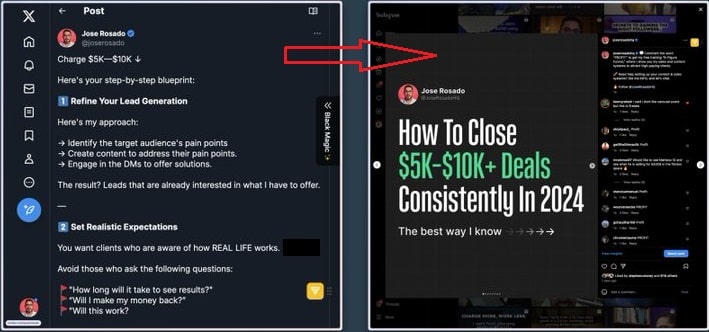
For example, LinkedIn carousel posts are an effective marketing strategy for reaching your audience by providing in-depth insights and discussions. 👄
They are easier to read and understand than simple paragraphs. 🥸 Converting tweets into carousel posts can make content more interesting and relevant, thus making it more engaging.
Instead of posting a list of boring facts or statistics, you can use carousels to make them more visually attractive, 😉 increasing the chances of viewers going through the entire post!
Conclusion: Use LinkedIn or Twitter depending on your Target Market
Both platforms are easy to use and navigate. ⛵ You do not need any previous experience or knowledge in using social media platforms, as it is a simple and easy way to communicate with people!
You can use both platforms, LinkedIn or Twitter, to get the most out of your B2b business, depending on your target market. 🎯 But if you’re interested, there are also Twitter X and LinkedIn alternatives.
Having a presence on different social media platforms can help you grow a larger audience than you would with just one platform.
LinkedIn can be used for more professional and business-oriented networkers, while Twitter X can be used when you want to grow your following. ⚡
So, whichever platform you choose to use, make sure you use it properly depending on your marketing plan. 🧠
FAQ of the article
Is LinkedIn replacing Twitter?
No, LinkedIn is not replacing Twitter. ✅ While both are social media platforms, they have different purposes and audiences.
LinkedIn is primarily a professional networking site focused on career development, making new connections, and industry-specific content. 🧨
Twitter, on the other hand, is a broader microblogging platform, suitable for real-time public conversations, trending topics, and news. 💌
Each platform excels in its own niche: LinkedIn for networking and career content, and Twitter for fast exchange and broad discussion. 📣 They complement rather than replace each other, satisfying different aspects of online interaction.
Does LinkedIn have more users than Twitter?
As of my last update, LinkedIn has fewer users than Twitter. 📉 LinkedIn claims to have over 900 million registered members worldwide.
Twitter, on the other hand, claims to have over 450 million monthly active users. 🌐 While LinkedIn has more registered members, its active user base (a metric comparable to Twitter’s monthly numbers) tends to be lower.
So in terms of active engagement, Twitter has a larger active user base, 🌟 making it a busier platform for day-to-day interactions and real-time content sharing than LinkedIn, which is more geared toward professionals.
Is LinkedIn owned by Twitter (X)?
No, LinkedIn is not owned by Twitter. 🙊 LinkedIn is owned by Microsoft, which acquired the company in December 2016.
The acquisition allowed LinkedIn to leverage Microsoft’s resources while operating as an independent entity within the larger Microsoft ecosystem. 🌍
Twitter or X, on the other hand, 👋 remains an independent company recently purchased by tech-guru Elon Musk, and has not been acquired by Microsoft or any other entity.
Great, now you know everything about LinkedIn vs Twitter! 🥊


